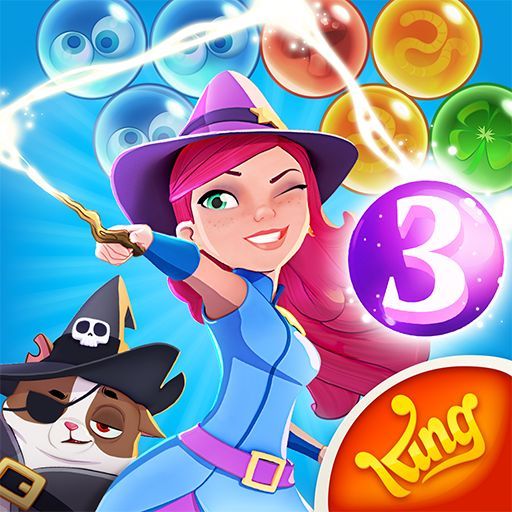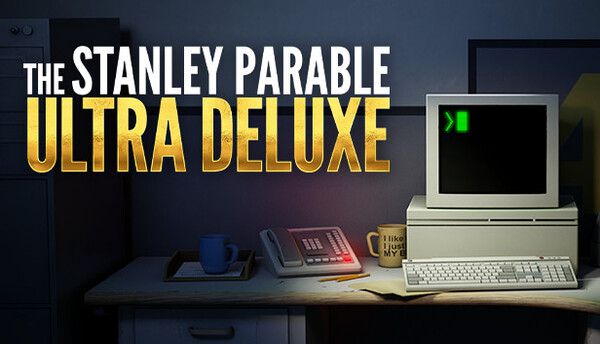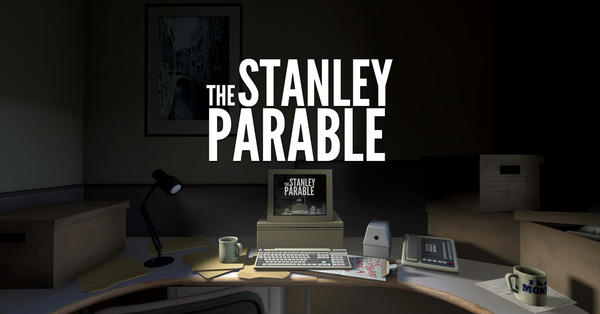
Fortnite

Grand Theft Auto: San Andreas

Minecraft

FIFA Soccer

Grand Theft Auto: Vice City

Grand Theft Auto III

Poppy Playtime Chapter 1

Poppy Playtime Chapter 2

Magic Tiles 3

Scary Teacher 3D

Subway Surfers

Geometry Dash

Among us

slither.io

Temple Run 2

Stickman Hook

Toca Life World

Moto X3M Bike Race Game

Garena Free Fire: Winterlands

DRAGON BALL LEGENDS

Candy Crush Saga

Call of Duty Mobile

Bloons TD 6

CSR 2 Realistic Drag Racing

Hay Day

Plants vs. Zombies

PUBG MOBILE

Hitman Sniper

Five Nights at Freddy’s 4

Evony: The King’s Return

Need for Speed Most Wanted

Need for Speed No Limits

Five Nights at Freddy’s

Super Mario Run

Dead Cells

Gacha Life

Pokémon GO

Township

Plants vs. Zombies 2

Tiles Hop: EDM Rush!

Granny 3

Talking Tom Gold Run

Toca Life: Hospital

Sonic Dash

Gardenscapes

Five Nights at Freddy’s 3

Five Nights at Freddy’s 2

Candy Crush Soda Saga

Clash of Clans

DRAGON BALL Z DOKKAN BATTLE

League of Legends: Wild Rift

Pokémon GO

Star Wars™: Galaxy of Heroe

Asphalt 9: Legends

Bubble Witch 3 Saga

Geometry Dash

Hill Climb Racing

Hill Climb Racing 2

Mafia City

Star Trek™ Fleet Command
Advertisement

Disclaimers. The mobile game and app download address is from the official app marketplace of iOS App Store and Google Play. It has been checked for security and does not contain viruses or malware.
Platform:
File Size:
Current Version:
Updated Time:
Developer:
Content Rating:
Introduction
The Stanley Parable: Ultra Deluxe is not your typical video game. Originally released as a mod for Half-Life 2 and later as a standalone game in 2013, The Stanley Parable became a cult hit due to its unique approach to narrative and player agency. The 2022 Ultra Deluxe version expands on the original, introducing new paths, endings, and layers to its existential exploration of video game storytelling. But the game isn’t just about making choices; it’s about questioning the very idea of choice itself, ultimately leading players to an existential crisis about free will, predestination, and the role of the player in games. In this article, we’ll dive deep into the core issues that The Stanley Parable: Ultra Deluxe addresses and how it challenges the traditional concepts of narrative in gaming.

At the heart of The Stanley Parable: Ultra Deluxe lies one of its most fundamental questions: are you really in control of your actions, or is your sense of choice merely an illusion?
The game begins with Stanley, an office worker, receiving no instructions on his computer, prompting him to leave his desk and explore. From the moment the game starts, a voiceover narrator guides the player’s every move, providing instructions and commentary on Stanley’s actions. The tension between following the narrator’s guidance and defying it is the game’s central mechanic.
Players quickly discover that they can deviate from the narrator’s instructions, making choices that contradict what the voice expects. However, even when players rebel, the game seems prepared for it, offering alternate paths and outcomes that were clearly designed by the creators. This raises an unsettling question: if all possible actions are pre-planned, do players truly have any freedom in the game?
One of the defining features of The Stanley Parable: Ultra Deluxe is its branching paths and multiple endings. However, rather than offering a clear “right” or “wrong” ending, each path leads to a conclusion that feels incomplete or unsatisfying in its own way.
Some of the endings result in a reset of the game, where players are returned to the beginning, forced to start over as if their choices had no lasting impact. This repetition creates a sense of futility, as if the game is mocking the idea of meaningful progress.
Other endings are more subversive, breaking the fourth wall to comment on the player’s role in the story. For example, in one ending, the narrator scolds the player for trying to “break” the game, implying that no matter what choices are made, the game is still in control. These endings force players to confront the idea that their decisions might be irrelevant, a stark contrast to the power fantasy typical of most games.
The Stanley Parable: Ultra Deluxe doesn’t just tell a story—it comments on the nature of storytelling itself. The game frequently breaks the fourth wall, acknowledging that it’s a video game and that the player is interacting with a pre-programmed system.
The narrator is not just a voice but a character with his own motivations and personality. He reacts to the player’s decisions, sometimes with frustration, amusement, or even despair. At times, it feels as though the player is playing against the narrator, who wants the story to unfold in a particular way. This creates a dynamic where the game becomes a dialogue between the player and the narrator, with both trying to assert control over the story.
Throughout the game, The Stanley Parable deconstructs common video game tropes, such as the illusion of choice, the concept of progress, and the nature of player agency. For example, the game mocks the idea of a “hero’s journey,” where the player overcomes obstacles and achieves a meaningful goal. Instead, it presents an experience where every choice seems arbitrary and every outcome feels preordained.
The Ultra Deluxe version of The Stanley Parable introduces new content that pushes its themes even further, questioning the relationship between developers, players, and games.
The Ultra Deluxe expansion adds new paths and endings that expand on the original game’s themes. These new sections often feel like a commentary on the game’s own success and the expectations placed on the developers to “improve” the original. One new ending even directly references the development of Ultra Deluxe, with the narrator discussing the challenge of creating new content for a game that was already considered complete.
One of the most notable additions in Ultra Deluxe is “The Bucket,” a seemingly mundane object that the narrator treats with great reverence. The Bucket adds a new layer of absurdity to the game, with entire new storylines and endings revolving around whether the player chooses to carry it or leave it behind. This object serves as another way for the game to poke fun at itself and its players, as the meaning behind the Bucket is deliberately left ambiguous.
One of the ways The Stanley Parable: Ultra Deluxe stands out is through its use of humor. The game is filled with witty, often absurd, commentary on video game conventions, player expectations, and even the nature of work and life itself.
The game’s humor is often satirical, poking fun at the conventions of modern gaming. Whether it’s making fun of overly complicated game mechanics, narrative-driven experiences, or the expectation that players must always “win,” The Stanley Parable turns these ideas on their head, forcing players to laugh at the absurdity of it all.
However, the game’s humor can also have a cynical edge. The endless repetition of certain choices, the futility of achieving a “good” ending, and the narrator’s occasional despair all suggest that the game is more than just a playful satire—it’s a critique of the very nature of free will and player agency in games.
One of the most profound aspects of The Stanley Parable: Ultra Deluxe is how it forces players to confront the concept of choice in video games. In most games, choices lead to tangible outcomes, whether it’s a new level, a special reward, or a different ending. But in The Stanley Parable, choices feel more like experiments in futility.
There is no “right” path in The Stanley Parable. Whether players choose to follow the narrator’s instructions or rebel against them, the game adapts but never leads to a sense of finality or satisfaction. This raises questions about the nature of choice in video games: if all outcomes are pre-planned, does choice even matter?
The game’s refusal to reward players with a clear victory or happy ending can lead to an existential crisis. In a world where every outcome is predetermined, what is the point of making decisions? The Stanley Parable invites players to wrestle with these questions, leaving them with more doubts than answers.

In a way, The Stanley Parable is a game without a traditional story. There’s no overarching plot or clear character development. Instead, the game’s narrative is more about the experience of playing itself.
The nonlinear structure of The Stanley Parable means that there’s no definitive beginning, middle, or end. Players can explore different paths, but none of them lead to a traditional resolution. This lack of a coherent narrative can feel disorienting, but it also reinforces the game’s themes of choice and free will.
Ultimately, The Stanley Parable asks players to reflect on their role in shaping the story. In most games, players are passive participants, following the narrative laid out by the developers. But in The Stanley Parable, the player’s decisions, or lack thereof, become the story itself.
One of the key elements of The Stanley Parable: Ultra Deluxe is its replayability. The game encourages players to explore every possible path, but each path reveals a new layer of meaning.
Each playthrough offers the chance to discover new endings and hidden content. While some players may find this repetition tedious, others will enjoy the opportunity to uncover the game’s deeper themes. The more players replay the game, the more they begin to question the nature of their choices and the illusion of control.
The game’s replayability is also a commentary on the futility of seeking a “true” ending. No matter how many times players replay the game, they are unlikely to find a single, definitive resolution. This sense of futility is intentional, forcing players to confront the absurdity of their actions.
As gaming continues to evolve, The Stanley Parable: Ultra Deluxe serves as a reflection of both the medium’s potential and its pitfalls. It challenges developers and players alike to reconsider what a game can be, especially in an industry often focused on conventional success metrics like sales figures, graphics, and player retention.
One of the most significant takeaways from The Stanley Parable is its bold call for innovation in storytelling. The game demonstrates that players do not always need linear narratives or clear objectives to engage meaningfully. Instead, developers can explore complex themes and philosophical questions, creating experiences that provoke thought and conversation.
The Stanley Parable encourages players to engage in self-reflection about their gaming habits. It prompts them to consider their motivations for playing: Are they seeking an escape, validation, or perhaps a deeper understanding of their choices? This introspection can lead to a more profound appreciation of the art of gaming and its capacity for storytelling.
Since its initial release, The Stanley Parable has significantly impacted gaming culture. It has influenced a generation of indie developers and has become a touchstone for discussions about narrative design and player agency in games.
The success of The Stanley Parable has inspired countless indie developers to experiment with unconventional storytelling techniques and gameplay mechanics. Many games now incorporate meta-narratives, humor, and player choice, reflecting the influence of The Stanley Parable on the broader gaming landscape.
The game has also fostered a vibrant community of players who analyze and discuss its themes. Online forums, videos, and articles dedicated to dissecting its layers of meaning illustrate how The Stanley Parable transcends mere entertainment. It serves as a platform for philosophical discourse on choice, free will, and the human experience.
The Stanley Parable: Ultra Deluxe received widespread acclaim from both critics and players. However, its unconventional approach also led to divided opinions on its accessibility and engagement.
Critics lauded the game for its originality and humor. Many reviews highlighted how the game successfully combines comedy with philosophical depth, creating a unique experience that challenges players’ expectations. The new content in Ultra Deluxe was particularly praised for adding fresh layers to an already complex narrative.
Despite its acclaim, some players found the game’s meta-narrative and philosophical themes difficult to grasp. Critics pointed out that while the humor is engaging, it may alienate players unfamiliar with video game tropes or who expect traditional storytelling. This divide raises questions about how games communicate their messages and the importance of accessibility in game design.
Experiencing The Stanley Parable: Ultra Deluxe is a journey through absurdity, humor, and existential musings. How players navigate this experience can vary widely, leading to different interpretations and emotional responses.
First-time players often find themselves bewildered and entertained, drawn in by the game’s clever writing and unexpected twists. Their initial encounters with the narrator’s guidance and the various endings can evoke feelings of confusion, humor, and intrigue.
Returning players, on the other hand, may approach the game with a deeper understanding of its themes and mechanics. They might find joy in exploring new paths or discovering hidden content, but they also confront the existential questions embedded in the narrative. This duality—of finding joy in absurdity while grappling with deeper meanings—enriches the overall experience.
Throughout the game, players may experience a range of emotions—from laughter and joy to frustration and introspection. This emotional rollercoaster is a testament to the game’s ability to engage players on multiple levels, creating a rich tapestry of feelings that linger long after the game is over.

The Stanley Parable: Ultra Deluxe is not just a game; it’s a profound exploration of choice, free will, and the nature of storytelling in video games. By challenging traditional narratives and encouraging self-reflection, it leaves a lasting impact on players and the gaming community. The game serves as a reminder that sometimes, the most meaningful experiences come from embracing uncertainty and questioning the very fabric of our decisions. As players navigate through its absurdity and humor, they are invited to reflect not just on their in-game choices but on their lives outside of gaming, making The Stanley Parable a landmark title in the world of interactive storytelling.